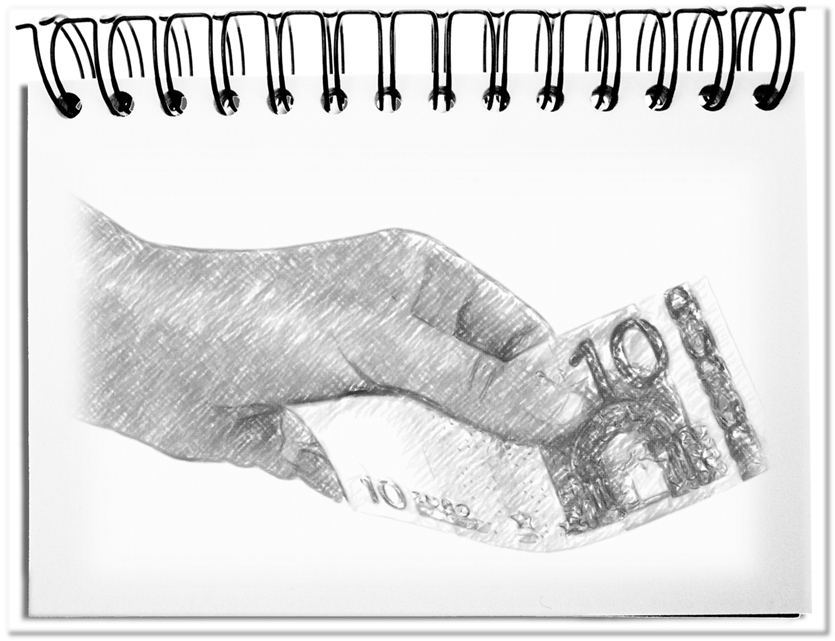Over the years we have allowed that our net assets „vanished into the air“ without us being aware of it. The outcome of our work is a number on the pay slip or the account statement. There is even already the concept of negative interests, i.e. fees for providing bank accounts. Nearly all transactions of our daily life are processed virtually without using cash. Ready money gets the nimbus of shadow economy (money from illegal employment, bribery and drug trafficking), in order to push us continuously into dependence on the banks. Don’t we assume that our money IS IN THE BANK? Then we should be able to withdraw it at any time. Or not?
The banks regulated in the course of time discreetly the handling of our wealth. They are already looking for new ways to squeeze even the last cent out of the ordinary people. Counter measures are difficult to establish, since our regular payments are only possible via the net. This is enforced by extra fees for personal services in the bank.
Just a few people will have recognized in daily life that they can only get money from an automatic teller up to a certain amount. These limits are explained with safety efforts. On the one hand the customer gets protected, if he loses his credit card (knowing that thereby only the insurance policies of the banks will be lowered). On the other hand such measures are to discourage bank robbers, since they will only get little cash in case of a robbery. Even if somebody would like to withdraw money directly in a branch, one has to announce its intention in advance, so that the desired sum will be available. Whether the bank has sufficient cash, i.e. liquid funds, is not questioned by anybody. The have after all OUR money. Or not?
At the same time even the use of plastic money is limited. Since the banks would like to animate the use of credit cards, the dangers of cashless consumption are rarely published – the Federal Bank of Germany reported in 2012 the loss of one euro for every 2635 € credit card revenues due to fraud, in total 1.33 billion €. As a consequence one receives a certain maximum amount per week, which is often aligned to the purchases by credit card of the past months.
The Greek population experiences currently the consequences of these limits. No matter how much money someone „possesses“, all receive only 60 € per day and account, i.e. in total 1860 € per month. As if the individual citizen has to be punished for bad politics.
But where is then the money that humans earned over a long time? Can this be reliably answered by someone at all?
In the past, money had a value that resulted from its material – gold, silver or the like. Later the money circulation was covered by appropriate gold reserves. At latest since the American president Nixon ended the international convertibility of the U.S. dollar to gold in 1971, new business models for currency trades arose that are nowadays used by speculators without mercy. Thus, a materialistic assurance for the money is missing. If all Germans would try to withdraw their savings, the banks would close very quickly, because only a small portion of the entire money supply is available as cash. Who owes whom what? Nevertheless the banks are called system relevant and are subsidized with tax funds. Since the access to the own properties is controlled by the banks, eventually we have no opportunity to get our fortune. Those, who will solve this gordian knot (see https://en.wikipedia.org/wiki/Government_debt) one day, will go down in history as martyrs. Because that this knot has to be solved is no question, because only cash is the real thing.
Bottom line: The comfortable, cashless bank services took over control of our property from us. Already Bertolt Brecht brought it to the point – „Bank robbery is an initiative of amateurs. True professionals found a bank.“ Since the account statement is not a currency, it only has an alleged value, because the indicated sum is not at one’s disposal at any time. The only things with value are material properties. The rest evaporates in a crash as the data after a computer crash. Only cash is the real thing.


